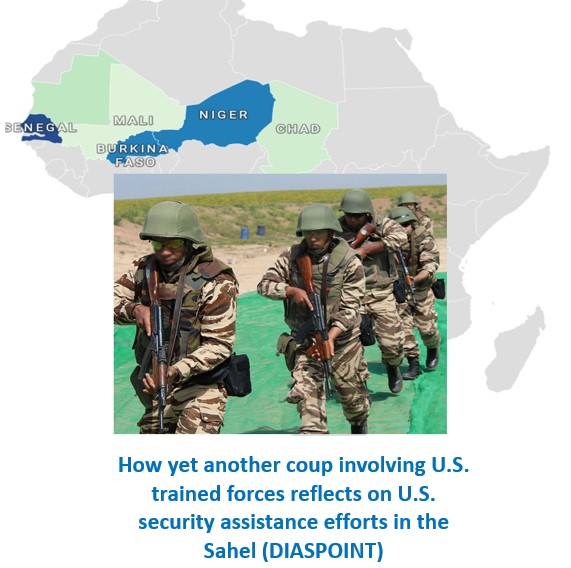What Niger’s Coup Says About U.S. Security Assistance in the Sahel
Post By Diaspoint | August 22, 2023

In what has become an all too familiar phenomenon, U.S.-trained security personnel have been implicated in the July 26th coup that deposed Niger’s democratically elected president, Mohamed Bazoum. It is the fifth such putsch in the Sahel since 2020, and just the latest to, once again, upend Washington’s expansive counterterror operations in the region that seems to depend on questionable military partners. As the Biden administration wrestles with how to respond, it should consider how this latest military takeover reflects on years of U.S. security cooperation in the Sahel and the efficacy of the approach that has defined U.S. engagement with the region.
Overview of U.S. Assistance to Niger and the Sahel
Over the last decade, U.S. security cooperation in the Sahel, and the western Sahel in particular, has grown substantially, reflecting widespread concern about the surge in Islamist militancy in the region. A mix of armed groups, including those with affiliations with Al Qaeda and the Islamic State, have proliferated in the region over the years, carrying out opportunistic attacks, engaging in illicit economic activity, and posing acute challenges to state authority.
The United States has responded to perceived threats in the region by investing heavily in its own counterterror operations and security assistance programs, amounting to more than $3.3 billion in military aid to the Sahel over the last two decades. Programs like the Trans-Sahara Partnership Initiative, Department of Defense building partner capacity programs, and numerous foreign military training operations have been central pillars of the U.S. approach to the region. Despite being paired with significant amounts of economic and humanitarian assistance, they have anchored bilateral relations between Washington and its Sahelian partners.
Between FY2001 and FY2021, the United States provided the countries of Burkina Faso, Chad, Mali, Mauritania, Niger, and Senegal at least $995 million in direct security assistance, a figure which likely excludes much of the aid provided through large but opaque Department of Defense capacity building programs. And between FY2001 and FY2020, the United States provided training to at least 86 …..
Read More from original source
